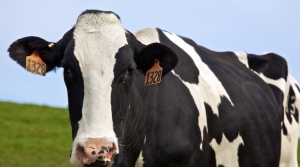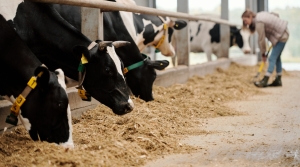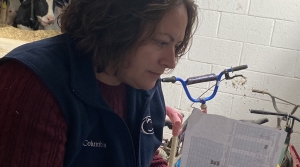UNIVERSITY PARK, Pa. — Harvest season is coming to a close, meaning another year has almost come and gone. Preparations for the holiday season are beginning and there is one year-end task that cannot be forgotten: year-end tax planning. Tax planning is a critical and useful tool in your toolbox to utilize for determining what you will have to pay towards taxes. This is also a time of the year for an accountant to visit you prior to the start of the New Year. Proper year-end planning is critical in understanding what your farm’s tax liability will be. Preparation in taxation is key in your farm’s business management plan.
For many dairy producers, it’s crucial to have a well-planned discussion with your tax preparer. Establishing an effective tax strategy from the start saves time throughout the year, especially during tax season. A common challenge for farmers is that the demands of daily operations often leave little time for focusing on long-term financial planning.
Why is it critical to have those important conversations with your accountant? Being out of the loop on the most recent tax laws can hurt your business (and as a result of how many tax laws there are, and how often they change, it’s easy to be out of the loop). The worst-case scenario is that you wind up paying more in taxes than you need to or you miss a deadline and get hit with fines.
Quarterly meetings with your accountant can save you a great deal of stress, hassle, and possibly money. Your accountant can clear up any questions and help you set up a plan of action for the quarter that fits your plans and needs into the giant tax-law puzzle. Quarterly meetings help to make that last visit from your accountant at the end of the year a little less stressful. Trying to do tax planning for the prior year while sitting with your accountant in early April for your tax return preparation is simply a day late and a dollar short.
A common mindset with producers (and others) is they never want to pay taxes. However, a successful business that has generated income does pay taxes. The objective is to minimize the amount of taxes over the lifetime of the business versus focusing on one year.
Estimating and paying your quarterly payments can be an incredibly complex process that could have big repercussions for your business. Plan too little and you could end up with a big, unplanned payment or additional fees. Estimate too much and your cash flow can end up stifled.
Your accountant can walk you through the estimation each quarter, so you are paying the taxes you need to pay, but no more than necessary.
There are many tax-saving strategies that might be utilized in each situation. Some of these strategies include:
- Identifying deductions
- Divesting assets that represent unrealized losses to off-set capital gains
- Restructuring income
- Purchasing needed equipment earlier than planned
- Delaying the receipt of year-end payments from customers until early the following year
- Expediting the payment of expenses
- Contributing to qualified retirement plans –such as 401(k), 403(b), 457(b), IRA, and SEP
- Contributing to a church or charity
Lastly, the key point of any business is to review tax documents annually. They can be confusing but it’s important to review those tax documents. It’s important to understand what numbers are being reported. Business owners signing the tax forms could be held liable if audited by the IRS or the Pennsylvania Department of Revenue. Asking questions and keeping current on changes occurring with taxes is the responsibility of the owner and not just the tax preparer. So, ask those questions if you don’t understand where a number is coming from.
Think about your future. Eventually, all farmers will retire or want to pass that farm business to the next generation. Have you contributed to your social security at all during your career? How are you going to survive those retirement years? My colleagues and I often see many producers not thinking about that next step in their lives. Even if you are only in your 20’s, it’s never too early to start planning. Succession planning or transitioning a farm operation are important concepts to consider and investigate.
In closing, it’s important to be in the know about your business’s financial management. Having a tax plan is one component of a sound overall financial strategy and is a critical one. Unfortunately, many people overlook this crucial aspect, and in turn, end up overpaying a huge amount at the end of the year. Whether you’re just beginning your business or have had a business for years, it’s never too late or too early to build a plan. While you most likely would rather be in the fields or caring for your cows, it’s important to have those conversations with the professionals that you are paying to complete your taxes. If you don’t understand, ask. If you’ve asked before, ask again. Tax professionals are supposed to be there to assist you and guide you in those important financial decisions.
The Penn State Dairy Business Management team can assist you in some of those critical business management needs. Utilizing tools such as Penn State Extension’s Farm Account book can be the first step to help manage your farm’s critical business records that are often overlooked. This can be ordered online or at your local extension office. There are also computer software programs such as Quicken® or QuickBooks®. The Penn State Dairy Business Management team can assist you in the set-up for these programs. Additionally, Penn State Extension has a Farm Transition Team encompassing members from various areas of expertise should you have questions or need help on where to start. It’s crucial to stay organized and have a team of professionals in your corner to help your business succeed.
–Samantha Gehrett
Penn State Extension Dairy Educator











